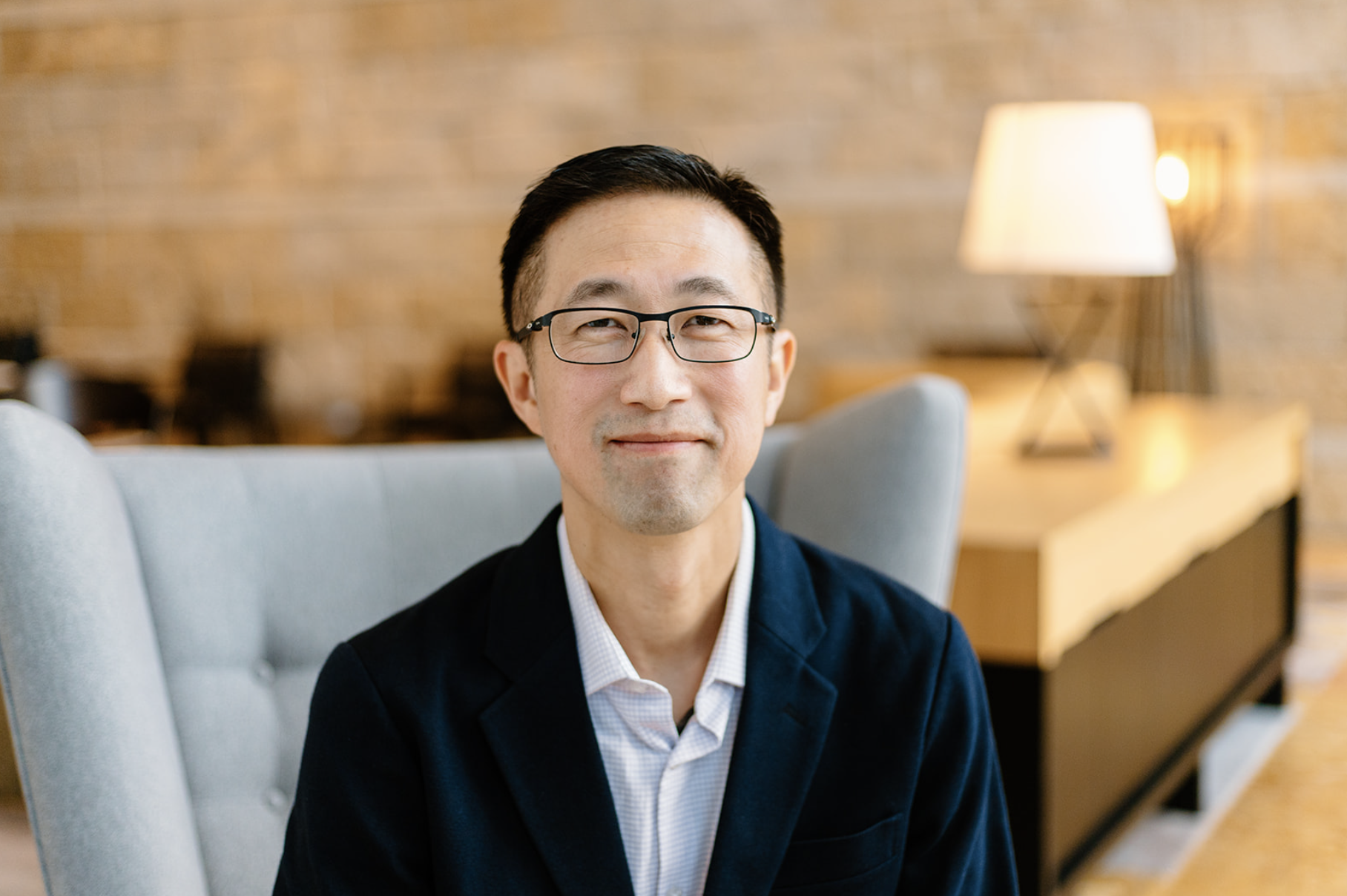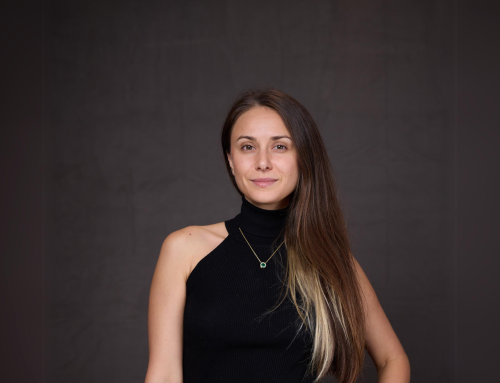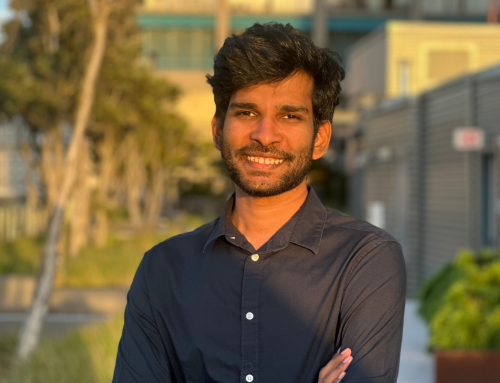Joshua Lee is the Founder and CEO of Ardius (a Gusto company) that combines intelligent automation technology and accounting experts to get startups access to R&D tax credits. He started this company after 13.5 years at Ernst & Young (“EY”) and later working in Venture Capital, where he saw how startups could benefit from knowing about the power of R&D (and other types of) tax credits.
What does “entrepreneurship” mean to you?
 Joshua Y. Lee: Find a problem and be the solution. That’s what entrepreneurship is at its core. From there, you build something (sometimes from scratch) you’re proud of with a team that shares your passion.
Joshua Y. Lee: Find a problem and be the solution. That’s what entrepreneurship is at its core. From there, you build something (sometimes from scratch) you’re proud of with a team that shares your passion.
What is your company’s origin story? What is the biggest reason you started your business?
JL: I started Ardius, now a Gusto company, to unlock opportunities that were previously out-of-reach for growing businesses and their bookkeepers/accountants.
$50 billion in free money from the government—in the form of R&D tax credits— is available and up-for-grabs for businesses. But most of them (especially small-and-medium sized businesses) don’t know about it and don’t realize they’re eligible.
This opportunity shouldn’t be out-of-reach. But historically, it has been. For decades, accessing R&D tax credits was a time-intensive and expensive process that only large corporations and the Big Four accounting firms had the resources to pursue.
By then, I had already seen all this up close. I’d worked at a Big 4 firm for 13.5 years, plus I’d started my own VC firm, so I knew there were eligible businesses out there that weren’t tapping into this valuable pool of undiluted capital.
I knew that if we streamlined the system to apply for R&D tax credits, while cutting out unnecessary and redundant aspects of the process, we could level the playing field for all businesses (regardless of size).
And now, we’re seeing small-and-medium businesses—from cement mixing plants to high-growth startups—earn tens of thousands and even hundreds of thousands of dollars in undiluted capital each year via Ardius and the R&D tax credit.
What did those early days look like and teach you?
JL: The early days really underscored the importance of awareness and education. And that’s a lesson we’re still living to this day.
We weren’t selling a solution that was widely known to small-and-medium businesses. Our customers are folks who would benefit from R&D tax credits but had no idea they existed. Plus, the Internal Revenue Code is extremely difficult to read and understand for everyday businesspeople.
Democratizing access to R&D tax credits means educating our customers that they exist and that they could be eligible. And when you start talking about “free money from the government,” it’s easy to sound like a stereotypical used car salesman trying to sell a lemon off the lot. It sounds almost too good to be true, but it’s not.
I remember so many of those early conversations with prospective customers. They were intrigued, of course. But some of them thought R&D tax credits sounded almost too good to be true.
So, we leaned into our expertise and experience in the field to show (not just tell) these businesses how much money they were entitled to. And when they saw us do the legwork and experienced how streamlined the process could be, they became believers—and told their friends. Building that word-of-mouth early on, by educating folks on the opportunity before them, was instrumental in growing our business.
What do you wish you knew when you started? Is there anything you would do differently?
JL: Whenever I provide guidance or advice to startup founders, I also lead with asking, “What is your end objective?” Starting with your goals and then working backwards helps when you’re first starting out. It becomes your North Star.
For Ardius, our goal was to reach as many small and medium businesses as possible. And being acquired by Gusto enabled us to collapse time to impact.
I remember, well before the acquisition, writing down several possible outcomes on a napkin. Partnering with Gusto was one of my dream outcomes, so I can truly say having a North Star goal helps to guide your business growth.
What does “success” look like for you? We’d love to hear your biggest, boldest dream? What do you think will help you achieve it?
JL: Success is leveling the playing field at scale for small-and-medium businesses nationwide. We’re just getting started with the impact we’re able to drive. I want R&D tax credits to be top-of-mind for every small and medium business in the country. And I want every business owner who thinks they might qualify to go through the steps and see for themselves what’s possible. Being part of Gusto—which serves hundreds of thousands of growing businesses—helps us get there. And I’m excited to grow Gusto R&D into a solution (within Gusto’s People Platform) that millions of businesses can benefit from.
I will say, for me, Ardius is already a full circle achievement. I knew every career move leading up to this prepared me for how to build Ardius in a way that could be successful. It’s my personal story of “convergence” (all things coming together) and my own “Sistine Chapel.”
How do you think about helping others through your work?
JL: Small and medium businesses are the backbone of our communities and the economy. We need to have their backs.
An entrepreneur can be anyone, anywhere. Technology and hybrid work have opened a new world of possibilities for starting a business.
By streamlining burdensome, time-intensive processes, we’re helping entrepreneurs clear hurdles that would otherwise keep them from starting their own businesses.
We’re not just a tool businesses use, we’re someone they can trust. We exist to help entrepreneurs and their bookkeepers/accountants build successful businesses.
That’s especially important in an economic climate like this one. Money is tight—particularly when it comes to VC funding and other capital. Having access to solutions like R&D tax credits can be a lifeline to businesses as they innovate and take care of their teams.
What advice do you have for fellow (and aspiring) entrepreneurs building and leading teams?
JL: Embrace failures as learnings. I’ve made mistakes throughout my career as an entrepreneur, but I am appreciative of those mistakes because those taught me valuable lessons, I still carry with me today.
Also, whether as an investor or founder, rarely do you build exactly what you thought you’d first build. The mistake is “paralysis by analysis” or not starting at all. It is important to build, test, and continuously iterate in parallel.
What kind of an entrepreneur do you want to be known as – as in, what do you want your legacy to be?
JL: I’d like to be known as the magician willing to reveal “how it’s done.” For too long, I feel like the chasm between VCs and founders has only increased due to this shroud of mysteries surrounding “fund-raising” and “exit strategy.” Having found success on both sides of the table, I love showing founders what to look for and when… In essence, (especially first-time entrepreneurs) how could they know what they possibly couldn’t know…?
To this end, and as an entrepreneur myself, this means unapologetically providing value and educating/teaching fellow founders the good / bad / ugly sides of entrepreneurship (even as they chase their own goals and dreams).
Do you have someone you’d like to nominate to be profiled in our Faces of Entrepreneurship series? Please let us know by emailing media@thecenter.nasdaq.org or submit your nomination using this form.




Invite a Friend
Close